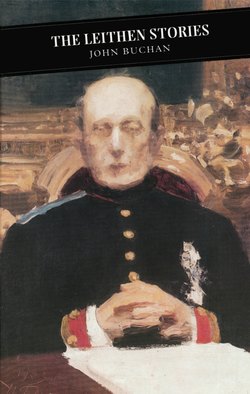Оглавление
Buchan John. The Leithen Stories
Introduction. I
II
III
IV
V
Contents
Preface by the Editor
Beginning of the Wild-Goose Chase
I First Hear of Mr Andrew Lumley
Tells of a Midsummer Night
I Follow the Trail of the Super-Butler
I Take a Partner
The Restaurant in Antioch Street
I Find Sanctuary
The Power-House
Return of the Wild Geese
Contents
In which ThreeGentlemen Confess their Ennui
Desperate Characters in Council
Reconnaissance
Fish Benjie
The Assault on Glenraden
The Return of Harald Blacktooth
The Old Etonian Tramp
Sir Archie is Instructed in the Conduct of Life
Sir Archie Instructs his Countrymen
In which Crime is Added to Crime
Haripol – the Main Attack
Haripol – Transport
Haripol – Auxiliary Troops
Haripol – Wounded and Missing
Haripol – the Armistice
Epilogue
THE DANCING FLOOR
NOTE
1
2
3
1
2
3
1
2
3
4
5
6
7
8
9
10
11
12
13
14
15
1
2
3
4
5
6
7
8
9
10
11
12
13
14
15
16
17
18
19
20
21
22
23
24
1
2
3
4
5
6
7
8
9
10
11
12
13
14
15
16
17
18
19
20
About the Author. JOHN BUCHAN
Copyright
Отрывок из книги
… you are a man of good commonplace intelligence. Pray forgive the lukewarmness of the phrase; it is really a high compliment, for I am an austere critic. But you also possess a quite irrelevant gift of imagination. Not enough to affect your balance, but enough to do what your mere lawyer’s talent could never have done. You have achieved a feat which is given to few – you have partially understood me.
The prototype Buchan villain, Andrew Lumley in The Power House (1913) got closer to nailing Sir Edward Leithen than anyone else. Leithen, the first and last of Buchan’s heroes, and the one closest in character to his author, was also his most enigmatic. It’s possible to construct his biography – Buchan’s characters, popping up from novel to novel, usually have well-realised backgrounds – but Buchan on Leithen is uncharacteristically sketchy. He tells us he was born in 1879 and a Scots Calvinist, but nothing about his presumably Peeblesshire family, save for a somewhat dim nephew, Charles. He is a Tory MP and a barrister in The Power-House, yet in The Dancing Floor he seems to have acquired his knighthood as Solicitor-General pre-war. He was only elected in 1910, and couldn’t have been in the wartime government, as he was serving at the front; and, unusually, he doesn’t go on the bench. He comes awkwardly close to his creator, and seems to operate as an intellectual filing-cabinet for preoccupations and speculations which Buchan wanted to keep at one remove from himself. To compare him with another lone barrister in London, Anthony Trollope’s moving portrait of the widowed Sir Thomas Underwood in the otherwise rather silly Ralph the Heir (1871), is to see how flat a character he initially is.
.....
A recollection came back to me. It was of a hot upland meadow in Tyrol, where among acres of flowers and beside a leaping stream I was breakfasting after a morning spent in climbing the white crags. I had picked up a German on the way, a small man of the Professor class, who did me the honour to share my sandwiches. He conversed fluently but quaintly in English, and he was, I remember, a Nietzschean and a hot rebel against the established order. ‘The pity,’ he cried, ‘is that the reformers do not know, and those who know are too idle to reform. Some day there will come the marriage of knowledge and will, and then the world will march.’
‘You draw an awful picture,’ I said. ‘But if those extra-social brains are so potent, why after all do they effect so little? A dull police-officer, with the machine behind him, can afford to laugh at most experiments in anarchy.’
.....
